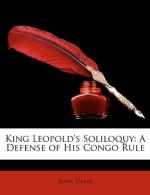|
This section contains 9,104 words (approx. 31 pages at 300 words per page) |

|
SOURCE: Hussey, S. S. “The Development of the Soliloquy.” In The Literary Language of Shakespeare, pp. 181-202. London: Longman, 1982.
In the following essay, Hussey traces the evolution of Shakespeare's soliloquies, from the early tragedies and history plays to the later tragedies, with particular attention to their function and syntax. Remarking on the development of these speeches from expository passages to communications of moral or psychological confusion, the critic discusses soliloquies in a number of plays, especially Macbeth and Hamlet, but also Henry VI, Part 3, Richard III, Julius Caesar, and Othello.
We must beware of applying to English drama a Darwinian theory of evolution which gives a neat development of mystery plays, moralities, interludes, the ‘University Wits’ and (finally) Shakespeare. No one of these completely drives out its predecessors and the young Shakespeare could well have seen morality plays acted. But obviously there is some sense of progress, and...
|
This section contains 9,104 words (approx. 31 pages at 300 words per page) |

|


